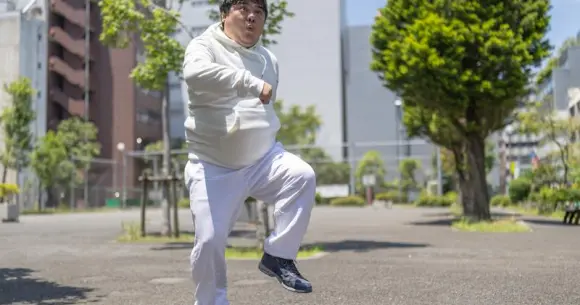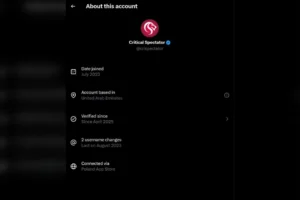
We need to tell you to take a look before the new slang of today outruns us all… eh ho eh ho…
As you advance in years, it is easy to start marveling at how the world keeps changing, from technology to popular culture. Perhaps one of the most rapidly evolving things is language, with new generations utilizing words in different ways to those in the past, or inventing completely new words. That does mean, however, that it is easy to get shipwrecked by the neverending waves of change, and be left bewildered by the barrages of “rizz”, “skibidi”, and “cap”.
The Japanese language also sees constant evolution, with new words and phrases appearing frequently. Releasing a summary of the year’s newly-coined terms, along with their origins and uses, is an annual tradition of publisher Jiyukokuminsha, which is great for anyone who is left wondering about why so many kids are talking about Labubu and Myaku-Myaku (the Osaka-Kansai Expo mascot) in what is known as The Year Book of the Contemporary Society.
Earlier this month, the latest installment of the series for the year 2026 was released, bringing with it a list of 30 different words that have been nominated for entry to the Shingo Ryukogo Taisho (New Words and Buzzwords Awards), with the top word set to be decided at the start of December. Let’s take a look at a selection of five of our favorite ones for this year.
1. Eh Ho Eh Ho / エッホエッホ
This phrase originates from a photo of a running baby barn owl by Dutch photographer Hannie Heere, which when people saw it, conjured up an image of the owl saying “Eh ho eh ho” as it runs, as if it is huffing and puffing. Starting off on Twitter, it then became viral on TikTok as people paired it up with marching animations and comedic clips, usually in the form of “Eh ho eh ho.. I have to tell everyone that [a little piece of trivia].” This trivia can sometimes be something well known, which adds to the comedic value that this little owl is desperately running to tell everyone something that they already know.
▼ In this clip they are saying they need to tell people the beloved children’s character Anpanman’s head is filled with tsubu-an (coarse red bean paste), which is a fact that anybody who knows about the character is likely to know.
2. Otetsutabi / おてつたび
The term otetsutabi refers to a short-term holiday service that is recently growing in popularity among young people and on social media. It combines the two words of otetsudai (“help” or “assist”) and tabi (“journey”) and refers to a program where travelers will temporarily work for a local business in a rural area, usually for two to seven days. In exchange for the help they provide, the traveler will receive a wage, accommodation, and opportunities to meet locals and experience the area, while still getting time to explore and sightsee around the region.
Included activities could be assisting at a farm, helping out in travel accommodations or other tourism facilities, or seasonal work like fruit picking and snow-related tourism assistance. This idea of otetsutabi is not limited to Japanese nationals, but seeing as participants are receiving money, even if it is just for a couple of days, a valid work or working-holiday visa is required.
3. Bijyu ii jan / ビジュイイじゃん
Bijyu ii jan is a line from the idol group M!LK’s song titled “Ii jan”. Bijyu ii jan essentially means “Your visuals look great, don’t they?”, and the phrase became popular due to the catchy impact of a dramatically modulated section of the song. Recently, people have been using it to compliment others’ appearances, which is most probably meant literally rather than the image that I get from the music video in that “you look great, but it’s certainly a little… different between that and what you normally would opt for.”
▼ The line features around 1:14, but the video is best viewed from the start for the shock factor of the transition.
4. Ni ki / 二季
Ni ki, or “two seasons”, is something that has been cropping up more frequently in social commentary these days, referring to how the extreme seasonal weather shifts have led the country to feel more like Japan only has summer and winter now. It has been a long held belief, and a source of pride for many Japanese people, that the country has four very distinct seasons, each with its own charm that shapes a lot of Japan’s cultural life. So, it’s understandable that quite a few people are anxious about the changing climate and how it will affect various aspects of their lives, but there are some who are doing their best to adapt to the changes.
5. Chokominto yori mo a・na・ta / チョコミントよりもあ・な・た
This phrase originates from a song by Japanese idol group AiScReam called “Ai♡Scream!”. The section of the song it comes from is a call-and-response where a member of the group asks another about what flavor of ice cream they like, to which the answer is “more than mint chocolate… you”.
Due to the playful and flirtatious delivery, and subsequent parodies by many famous K-pop artists like Twice and Aespa, the line is now being used as a way to jokingly express affection. In Japan, mint chocolate flavor is the favorite of many people, so to say you like someone more than that… well… you might as well just start picking out an engagement ring now.
My personal favorite that I have been hearing from students recently would have to be Chappii / チャッピー, a cute nickname for ChatGPT, although I’m not sure how I feel about how familiar they are with it to feel like giving it a nickname. With only a couple of days left to go until the announcement, we’re eager to see which of these terms will be crowned this year’s number one.
Source: Nominee List, Book Press Release, Otetsutabi Website
Top image: Pakutaso
● Want to hear about SoraNews24’s latest articles as soon as they’re published? Follow us on Facebook and Twitter!
[ Read in Japanese ]
Like this:
Like Loading…





